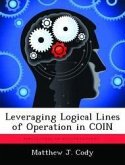In 1949, following the conclusion of its revolutionary war against the Chinese Nationalist forces, the People's Liberation Army (PLA) peacefully occupied China's western most province of Xinjiang. For nearly sixty years, the PLA has conducted a counterinsurgency against several, mostly Uyghur-led, separatist movements. Despite periods of significant violence, particularly in the early 1950s and again in the 1990s, the separatist forces have not gained momentum and remained at a level one insurgency. Mao ZeDeng is revered as a master insurgent and the father of Fourth Generation Warfare. Strategists in armies worldwide study his writings on revolutionary and guerilla warfare. This monograph concludes that Mao, as well as the communist leaders who followed him, was also successful at waging protracted counterinsurgency. For nearly sixty years, separatist movements in Xinjiang, Tibet, and Taiwan have all failed. This monograph analyzes the conflict in Xinjiang and concludes that the Chinese continue to defeat the separatist movement in Xinjiang through a strategy that counters Mao's seven fundamentals of revolutionary warfare.
Hinweis: Dieser Artikel kann nur an eine deutsche Lieferadresse ausgeliefert werden.
Hinweis: Dieser Artikel kann nur an eine deutsche Lieferadresse ausgeliefert werden.








